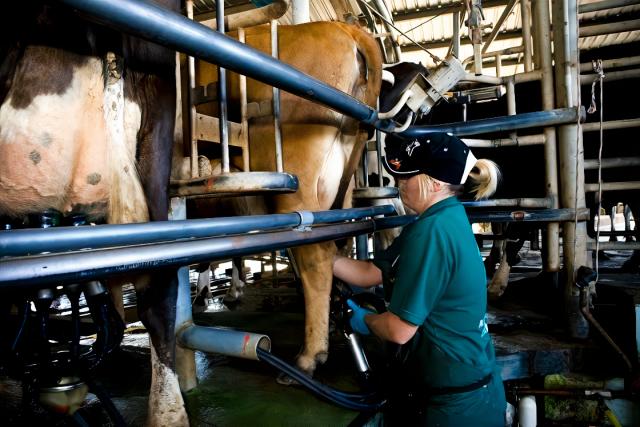Several of my veterinary colleagues have had leptospirosis. They described it as being like a nasty case of the flu, with aches and shivers, leaving them with weeks of chronic fatigue.
You may be wondering, why is leptospirosis common in vets?
The reason is they visit multiple properties with cattle, sheep, goats or pigs, some of which may have leptospirosis, and their occupation exposes them to the leptospira bacteria, which is found in an infected animal’s urine or aborted foetal materials.
Artificial insemination technicians, abattoir workers, livestock handlers, and pig hunters are at a similar risk.
In livestock, leptospirosis may cause abortion, mastitis, blood in urine due to kidney damage, and fever and death in young animals.
If the infection is well established in a herd, there may be little outward sign of disease.
Leptospirosis can be readily diagnosed with a blood test.
Many livestock producers, particularly dairy farmers, have leptospirosis control programs in place primarily to protect their staff. I’m sure their vets, AI technicians, stock agents and livestock transporters appreciate this as well.
Leptospirosis can be controlled through a vaccination program using 7-in-1, which includes protection against clostridial diseases found in a 5-in-1 vaccine, or by a standalone leptospira vaccine.
As with other vaccination programs, vaccination should be carried out by an initial vaccination, followed by a second vaccination four to six weeks later, and from then on, an annual vaccination.
Rodent control is also an important component of leptospirosis control since rodents may carry and spread the leptospira bacteria.
If you ever suffer flu-like symptoms and are in one of the high-risk groups, it is worth discussing the possibility of leptospirosis with your doctor since for a city or town person leptospirosis is rarely ever seen.
For further advice please contact your local veterinarian or Agriculture Victoria veterinary or animal health officer.
– Dr Jeff Cave is a senior veterinary officer







